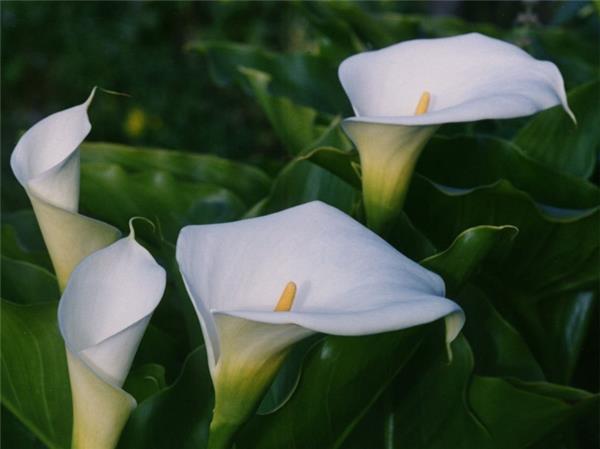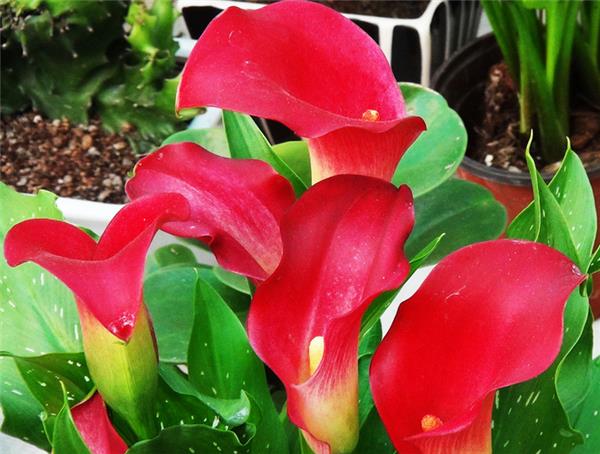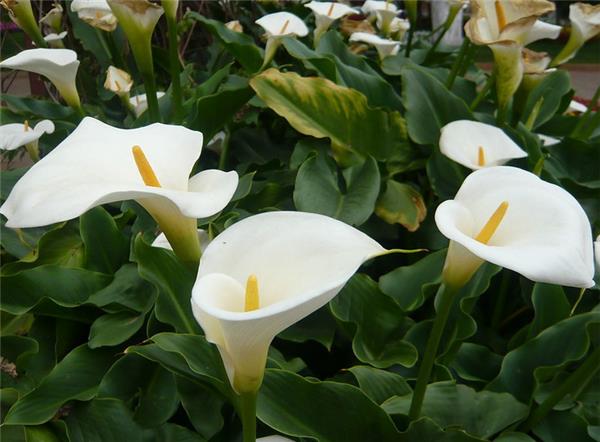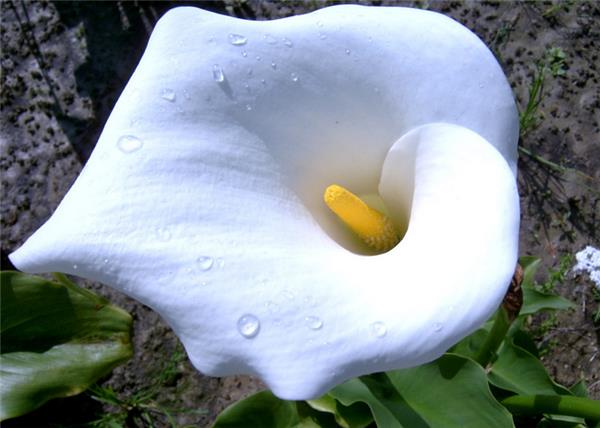Culture methods and matters needing attention of calla lilies
Calla lily is a very common flower in our daily life. Today we want to introduce the cultivation methods and precautions of Calla lily.

Culture method of calla lily
1, soil: breeding calla lilies suitable for selection of loose fertile, humus-rich, breathable drainage good slightly sticky soil. It is best to pad a layer of coarse sand on the bottom of the basin, match the soil and rotten leaves, and add a small amount of organic fertilizer to ensure good growth.
2, temperature: calla lily likes warm, humid environment, to avoid direct light. Summer strong light should be appropriate shade, winter is required to keep warm. The optimum temperature for calla growth is 22-30℃. When the temperature is lower than 20℃, calla growth will slow down or even stop growing.
3. Watering: Watering calla depends on the dryness of the pot soil. Calla lily growth period like sufficient water, usually in the basin soil surface and foliage, flower surface spray water, keep moist environment, and pay attention to foliage clean, make it fresh and green.

4, light: calla lily in the initial growth stage is more tolerant of shade, in its vigorous growth must have a very sufficient light, flowering period more need to have sufficient light, in order to ensure that it flowers and leaves luxuriant. If the calla flower period of insufficient light, it is easy to cause green buds or do not bloom.
5. Fertilization: Fertilize every 20 days during the growth period of calla lily, and select decomposed bean cake water; apply thin fertilizer frequently in peak season, once every 10 days. When fertilizing, do not pour fertilizer water from the leaf sheath to avoid causing calla lily decay and death. Less fertilizer may cause yellow leaves, malnutrition, and too much fertilizer, but also easy to cause yellow leaves of calla lily.

Notes on calla cultivation
1. Planting season of calla lily: calla lily enters dormant period in June-July, and then the bulbs around mature plants can be removed to raise new potted plants. The most suitable breeding season is August to September, and the use of split propagation must be in autumn, otherwise it is difficult to bloom or bloom late.
2. Toxicity of calla lily: Tubers, spathes and inflorescences of calla lily are poisonous, containing a large amount of calcium oxalate crystals and alkaloids. Eating by mistake will cause poisoning symptoms such as coma. Keep in mind when breeding.

The cultivation of calla lily experience
1. Calla's aversion to "smoke": Calla is more sensitive to "smoke". Stove smoke, smoking will make calla yellow leaves, flowers, poor growth.
Watering: Provide enough moisture (do not plant too shallow; water again when the soil is dry).
Drainage: The drainage performance of the soil is good to prevent the occurrence of excessive humidity.
4, to prevent damage to plants and tubers: to prevent wind damage to plants, be careful not to let herbicides affect the growth of plants, harvest and treatment operations should be careful.
Prevention of fungal diseases and pests: Damage caused by Pythium or Rhizoctonia, for example, may provide a harbor for invasion by Eustachia.
Related
- Wuhan Hospital Iron Tree Blooming Result Was Instantly Frightened by the Gardener Master
- Which variety of camellia is the most fragrant and best? Which one do you like best?
- What is the small blue coat, the breeding methods and matters needing attention of the succulent plant
- Dormancy time and maintenance management of succulent plants during dormancy
- Minas succulent how to raise, Minas succulent plant pictures
- What are the varieties of winter succulent plants
- How to raise succulent plants in twelve rolls? let's take a look at some experience of breeding twelve rolls.
- Attention should be paid to water control for succulent plants during dormant period (winter and summer)
- Watering experience of twelve rolls of succulent plants
- Techniques for fertilizing succulent plants. An article will let you know how to fertilize succulent plants.



